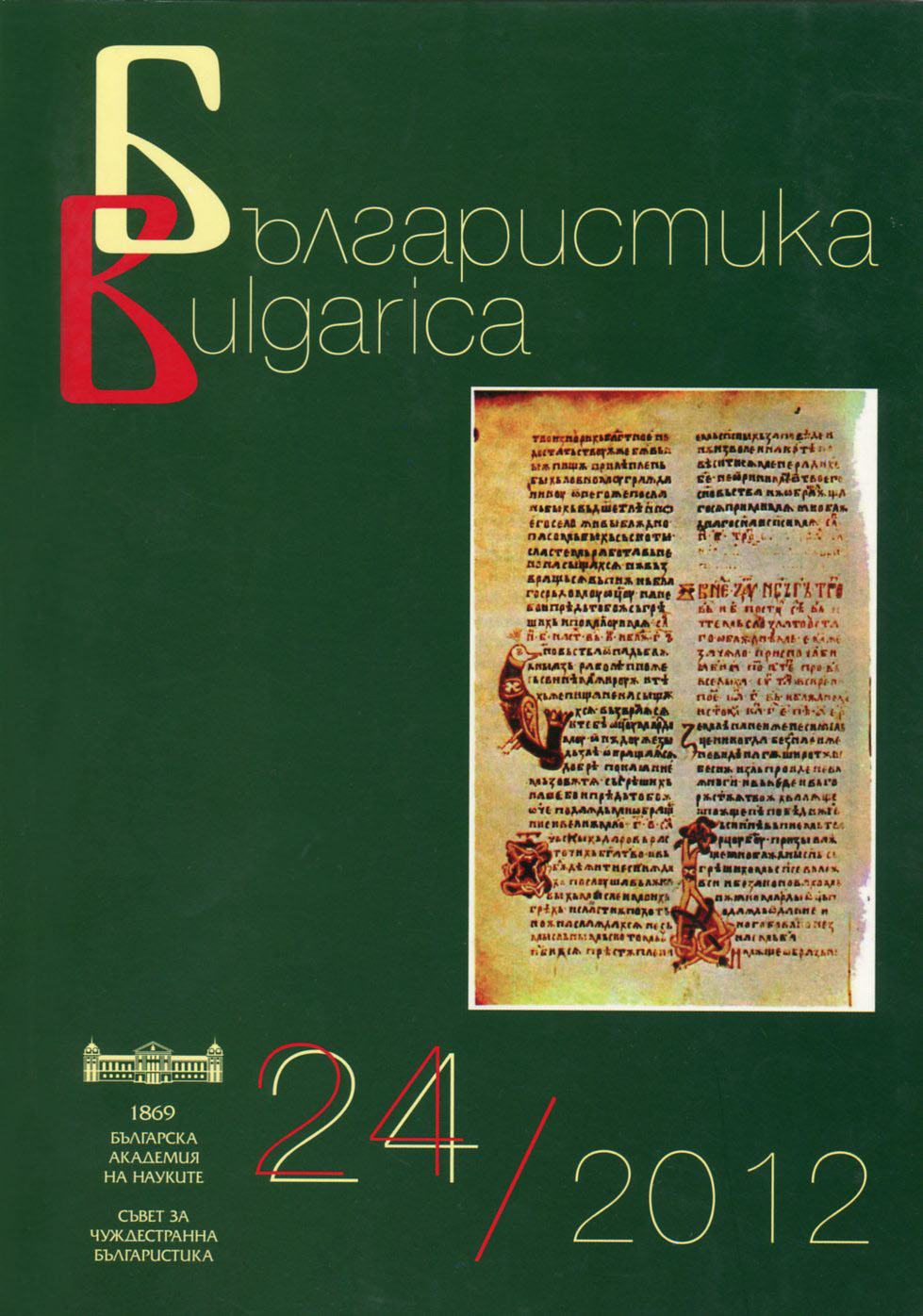
Книги 2011–2012 г.
Selected bibliography in the field of Bulgarian Studies published in the current year
More...We kindly inform you that, as long as the subject affiliation of our 300.000+ articles is in progress, you might get unsufficient or no results on your third level or second level search. In this case, please broaden your search criteria.

Selected bibliography in the field of Bulgarian Studies published in the current year
More...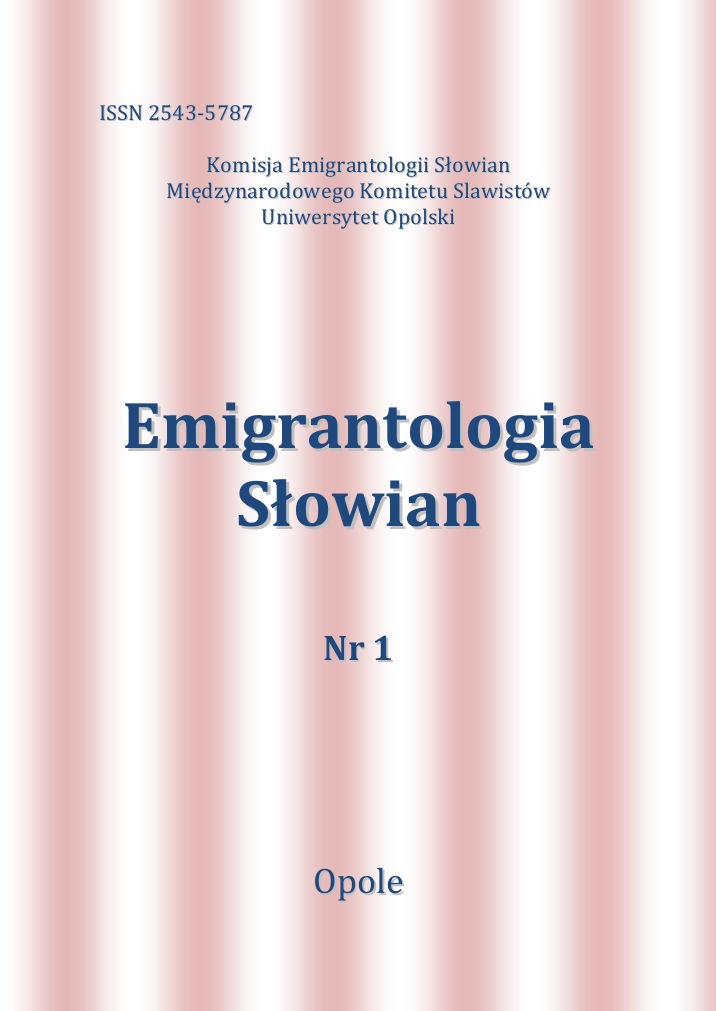
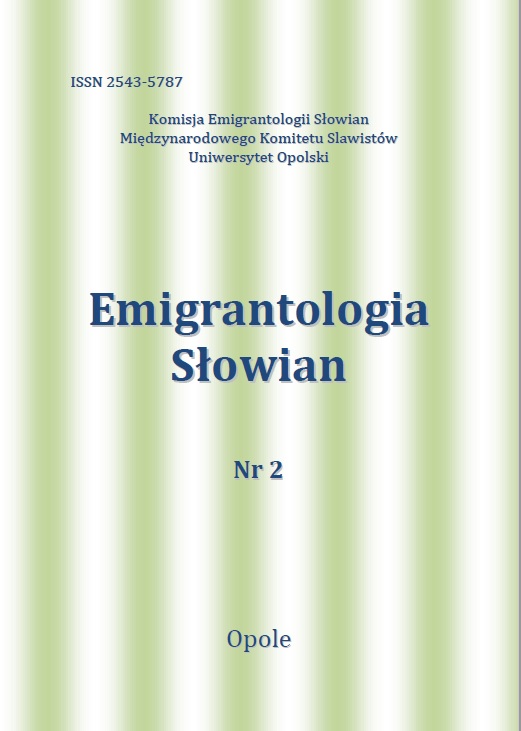
Conference report on an international scientific conference “Old Believers Abroad”, held in Toruń 19th-20th September 2016. The conference was devoted to various aspects of life of Old Believers’ communities outside Russia, as well as the problems of Old Believer emigration and general questions of Old Believerism.
More...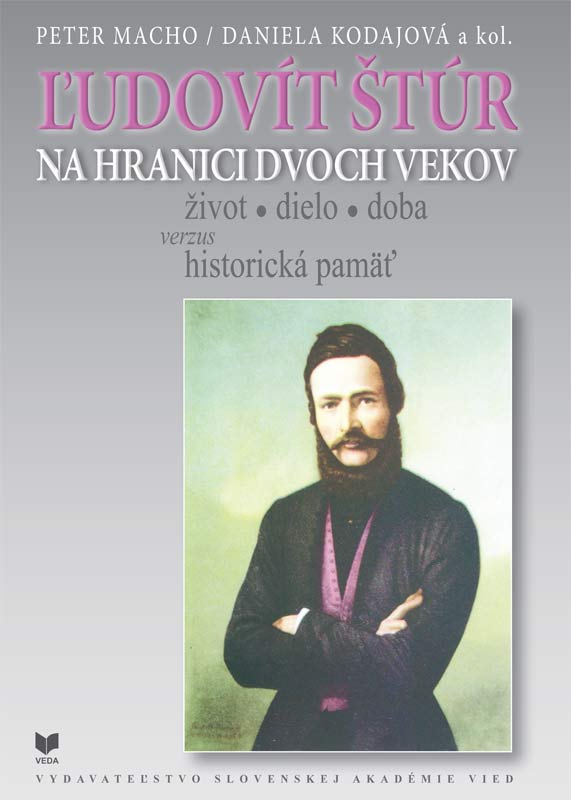
Kodifikácia slovenského spisovného jazyka je najdôležitejším počinom Ľudovíta Štúra a trvalou hodnotou, vďaka ktorej vznikol prvý a najdô- ležitejší atribút modernej slovenskej národnej identity. Vďaka tomuto základnému komunikačnému nástroju sa Slováci mohli na jednej strane postupne integrovať a formovať ako národné spoločenstvo, na druhej strane sa vďaka nemu mohli vymedzovať voči iným národným spoločenstvám. Nový jazyk bol v priebehu niekoľkých rokov prijatý v širokých kruhoch formujúcej sa národnej spoločnosti a zatlačil do úzadia nielen bernolákovskú slovenčinu, ale aj biblickú češtinu, ktorá mala síce v hornouhorskom prostredí úctyhodnú tradíciu, ale používala ju len slovenská evanjelická inteligencia. Dôvodom úspechu bola jednoznačne skutočnosť, že Štúr a jeho spolupracovníci dali odpoveď na existujúcu (a s rozšírením gramotnosti a spísomňovania) stále dôležitejšiu spoločenskú objednávku: namiesto bibličtiny s ťažkopádnou ortografiou a zastaranou slovnou zásobou, resp. namiesto málo používanej bernolákovčiny postavili literárny jazyk, blízky hovorovej reči.
More...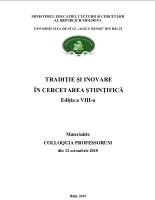
The Russian novel of the beginning of the twenty-first century is characterized by a variety of discursive practices, a variety of idiolect (individual style of the writer), various narrative forms which, according to the theory of the English researcher P. Labbock, fall into the following types: “panoramic survey”, “dramatized narrator”, “dramatized mind”, “pure drama”. The article provides a brief overview of the authors’ narrative features and speech practices of the characters in the novels “Laurus” by E. Vodolazkin, “Resident” by Z. Prilepin, “Fortress” by P. Aleshkovsky, “Winter Road” by L. Yuzefo-vich, “Zuleikha Opens her Eyes” by G. Yakhinaand others. Research focuses more on Alexandra Niko-layenko’s lyrical reflections and schizophrenic discourse in the novel “To Kill Bobrykin. The Story of a Murder”, winner of the Russian Booker independent literary prize in 2017.
More...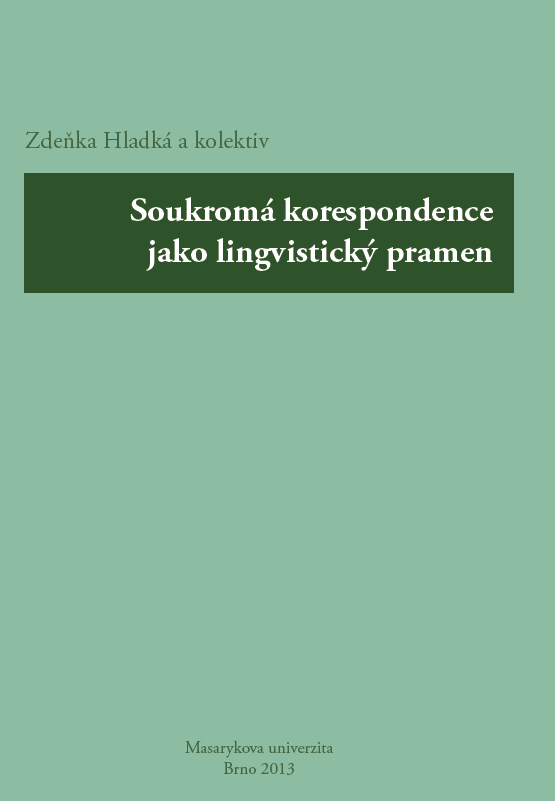
Božena Němcová’s Correspondence was analyzed firstly within the overall characterization of the writer’s style (namely by B. Havránek) and then as a confrontation background for textological research (A. Stich). Since 1990s, it has become subject to communication analysis and interpretation (A. Macurová, J. Janáčková, L. Saicová Římalová): the researchers’ attention has been drawn to the genre of private letter, to the presentation of the writer’s and addressee’s subjects, and to multilingualism. The work on a critical edition of correspondence both sent by and addressed to B. Němcová (2003–2007) induced special interest in the latter letters (R. Adam); besides Czech, newly also German was described (F. Martínek). Other descriptions dealt with word order (E. Hošnová) and spelling (R. Adam). To a minor extent, the correspondence was exploited as a documentary source.
More...
This paper begins by discussing the stylistic characteristics of correspondence and emphasizes the concept of correspondence as dialogue (constructed from turns in the form of letters) as well as the inner dialogical character of each individual letter. It points to the increasingly informal nature of letters at presentand to the permeation of spoken Czech into letter-writing. The second part of the paper views the letters of well-known individuals, in this case the love letters of the Czech authors Jan Neruda and Karel Čapek, from a pragmatic perspective. Using pragmatic parameters, the politeness/impoliteness and so-called temperature of the letters are observed. The third part is devoted to a stylistic analysis of contemporary letters, specifically of the typical correspondence of young people (from the Corpus of Private Correspondence, a part of the Czech National Corpus).
More...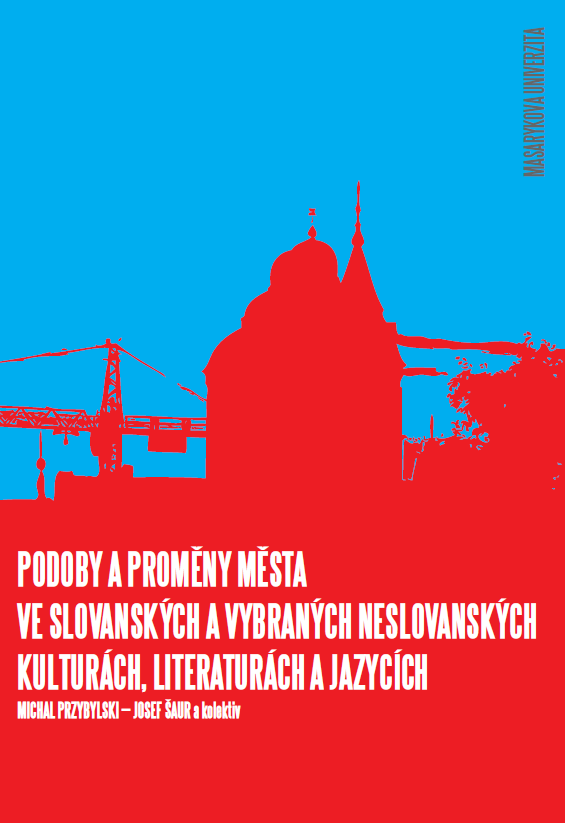
In her chapter on the transcription of the names of Czech cities in Russian texts, Stanislava Adámková covers the problems surrounding the absence of a unified standard for the use of Czech names in Russian texts. The absence of a set standard leads to very arbitrary usage for proper nouns, which makes international communication more difficult. The author aims to summarize the results of research by Czech and foreign experts and, using these together with her own research on practical examples of transcribing the names of Czech cities, to help beginning translators and other participants in the international community correctly use Czech proper nouns in Russian texts. This contribution acquaints the reader with the primary methods for transferring Czech toponyms into Russian, and includes, in a simple table, a guide to transcription of Czech names into Russian.
More...
In the next chapter, Eva Mikulková makes use of the linguistic deficiencies in a Czech-language Slovenian travel guide named Slovinsko (Baedeker, Praha 2008) to point out the typical mistakes in the declension of Slovenian city names and other toponyms (and rarely also anthroponyms) that a Czech speaker may encounter. The author summarizes here all existing rules for declining foreign toponyms and anthroponyms, and applies these general rules to Slovenian names. In addition to matters of declension, Mikulková also covers the question of whento use a name's original form vs. the Czech one.
More...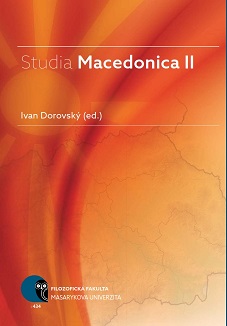
The text is about the Czech translation of Vladimir Martinovski’s works, published by Slavomira Ribarova in Brno between 2011–2013. He is a renowned poet and musician coming from the younger generation of Macedonian poets. Martinovski participated in the international residential programme “Journey Across Europe-Remeasuring Cultural Space”, 2010–2011, which was coordinated by the publishing house “Windmills” (Větrné Mlýny) in the Czech Republic. The same house has later introduced the full paper edition of Martinovski’s “Quartets”, intended for reading, watching, singing and listening, to the Czech audiences and poetry scene. Ribarova‘s translations are carefully crafted in a correct and precise manner.
More...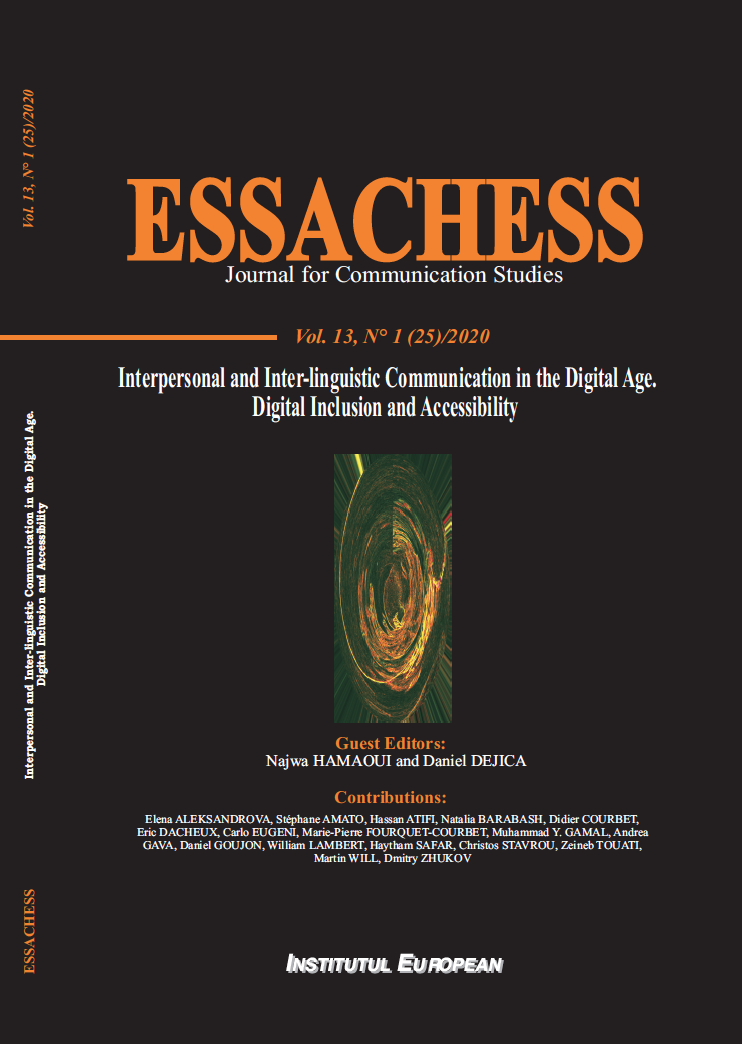
This article questions the linguistic mediation through the analysis ofpractices related to virtual technology tools in the field of users with visual andhearing impairment taking into consideration their sensitivity and civil rights. Theissues of the inclusion of a person who does not speak the language of a conferenceas well as the inclusion of a deaf, hard of hearing, blind or partially sighted audienceare discussed on the basis of a methodology that articulates the comparativeapproaches by comparison and / or distinctions of audiovisual translation platforms(with emphasis on Discord) and interview with users and trainers in audiovisualtranslation and linguistic mediation. The results highlight that digital inclusion ispossible and effective depending on the devices suggested and tested, with usageprotocols in place that favour free access
More...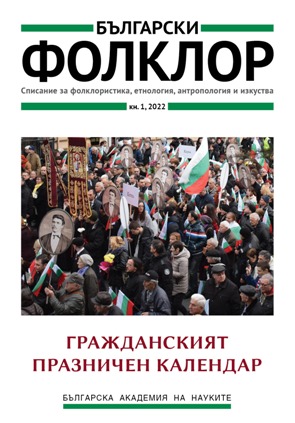
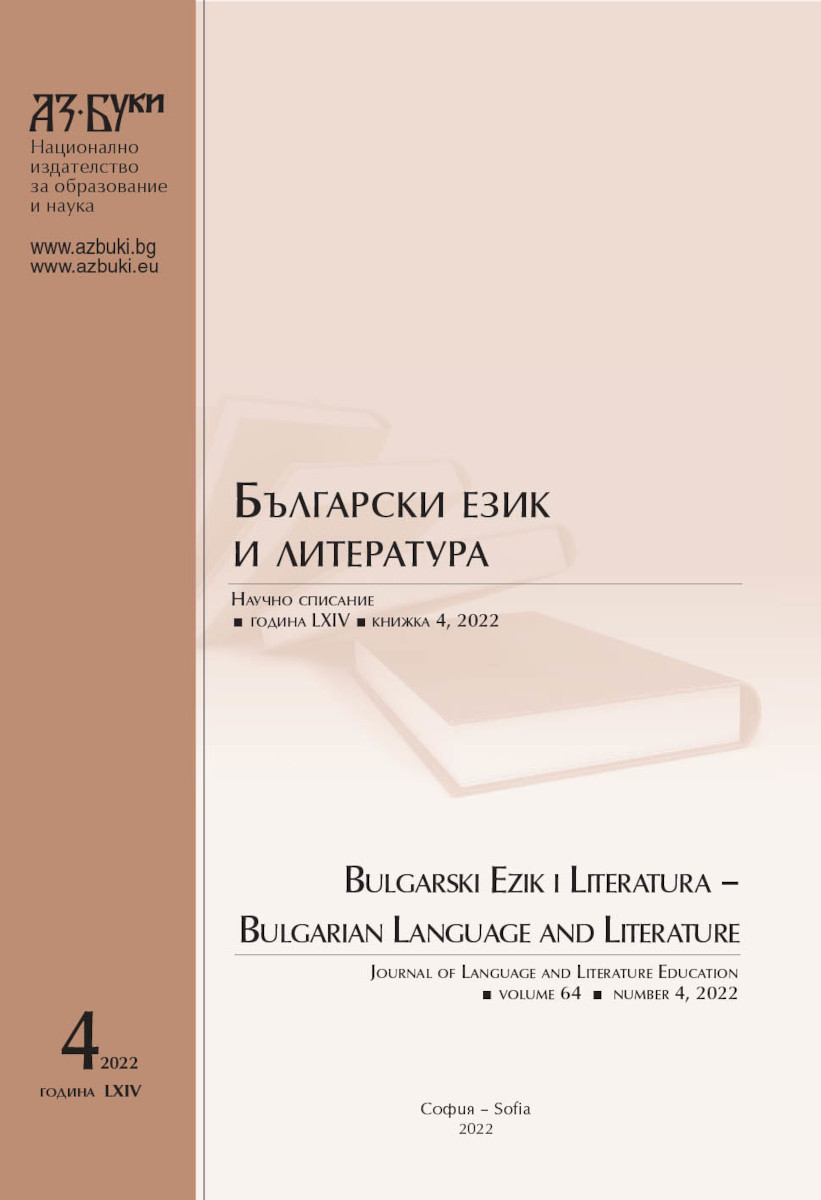
The article is devoted to the work of the Bulgarian writer of the XXth century, Angel Karaliychev. In the second half of the XXth century, his most famous fairy tales and stories for children were translated into Russian, including the collection “Bulgarian Folk Talesˮ in two volumes. In the Soviet Union, Karaliychev's fairy tales were included in collections of fairy tales of Slavic peoples and represented Bulgarian folklore in collections of fairy tales of the peoplesof the world published in Russian. Despite the fact that the last book edition of Karaliychev's fairy tales in Russian appeared in the 1980s, his works continue their life in the new century in electronic format, on the Internet. Karaliychev's fairytales, addressed to children 4 – 10 years old, tell about eternal values in a language understandable for children, they also introduce to children and adults the realities of Bulgarian life, the heroes of Bulgarian folk tales, expanding the horizons of the Russian reader.
More...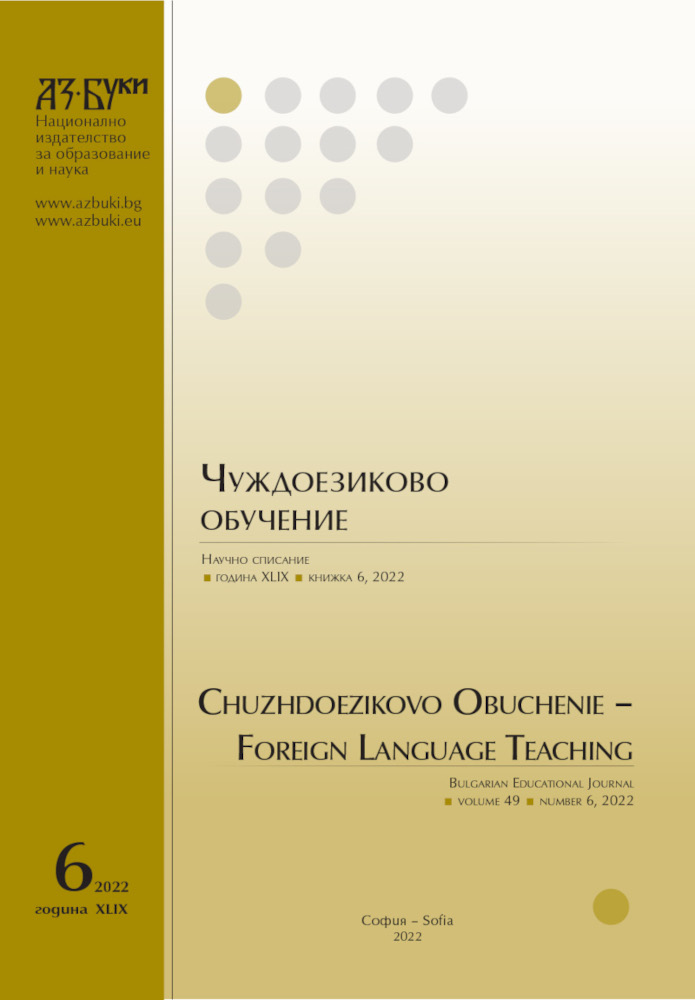
The article examines the breakdown of Roman Jakobson on the autonomy of linguistics and its relations with the other human sciences. Yakobson picks up and develops Sapir’s idea that the modern linguist cannot confine himself to his traditional field. He interprets autonomy and integration as two mutualy complementary concepts.
More...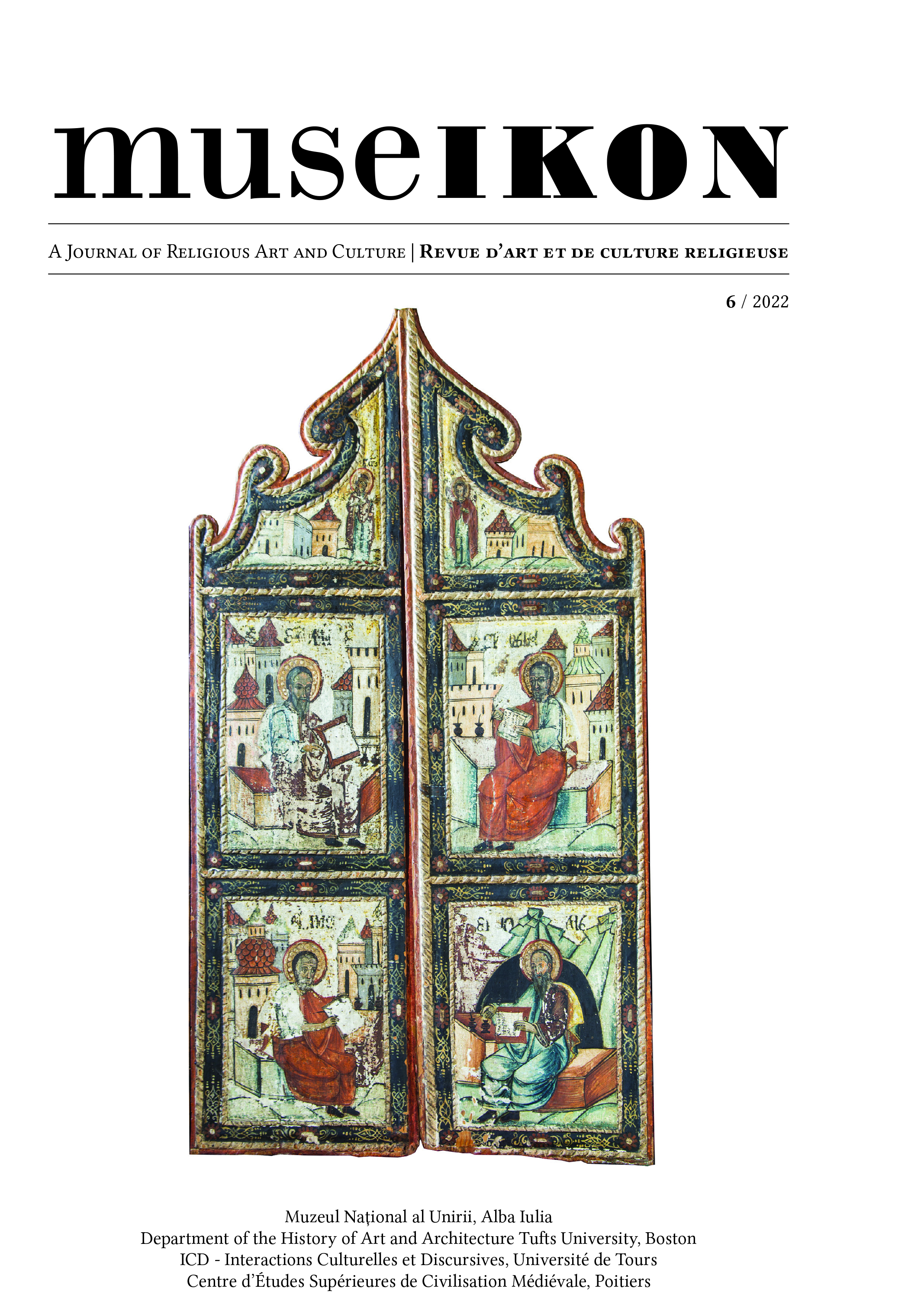
The Library of the Orthodox Metropolitan See of Moldavia and Bucovina in Iaşi preserves over a thousand copies of old Greek books. There are only ten manuscripts in this collection, one of which was com-missioned by Constantin Brâncoveanu, Prince of Wallachia. The collection consists mainly of Greek prints of various origins, some of which can be traced back to the library of the Princely Academy of Iași, succeeded by the Mihăileană Academy. Other volumes originate in the library of the Theological Seminary of Socola, founded by Veniamin Costachi Metropolitan of Moldavia, who donated his personal library to the Iași foundation. Sev-eral references come from the private collections of high hierarchs, while some books were collected from various Moldavian monasteries, especially from those who used to be metochia of the Greek Patriarchates and the great monasteries under their jurisdiction. This article evaluates the importance of the prints according to their dating, place of publication, owners, and contents (generally didactic books, but also polemical books of a religious nature). It also seeks to reconstruct the historical context of their circulation in Moldavia and the circumstances in which they came into the possession of the Metropolitan See of Moldavia and Bucovina. The analysis provided takes into account prosopographical investigations, the history of the Moldavian educational institutions, and the examination of the notes (mostly in Greek) on the prints.
More...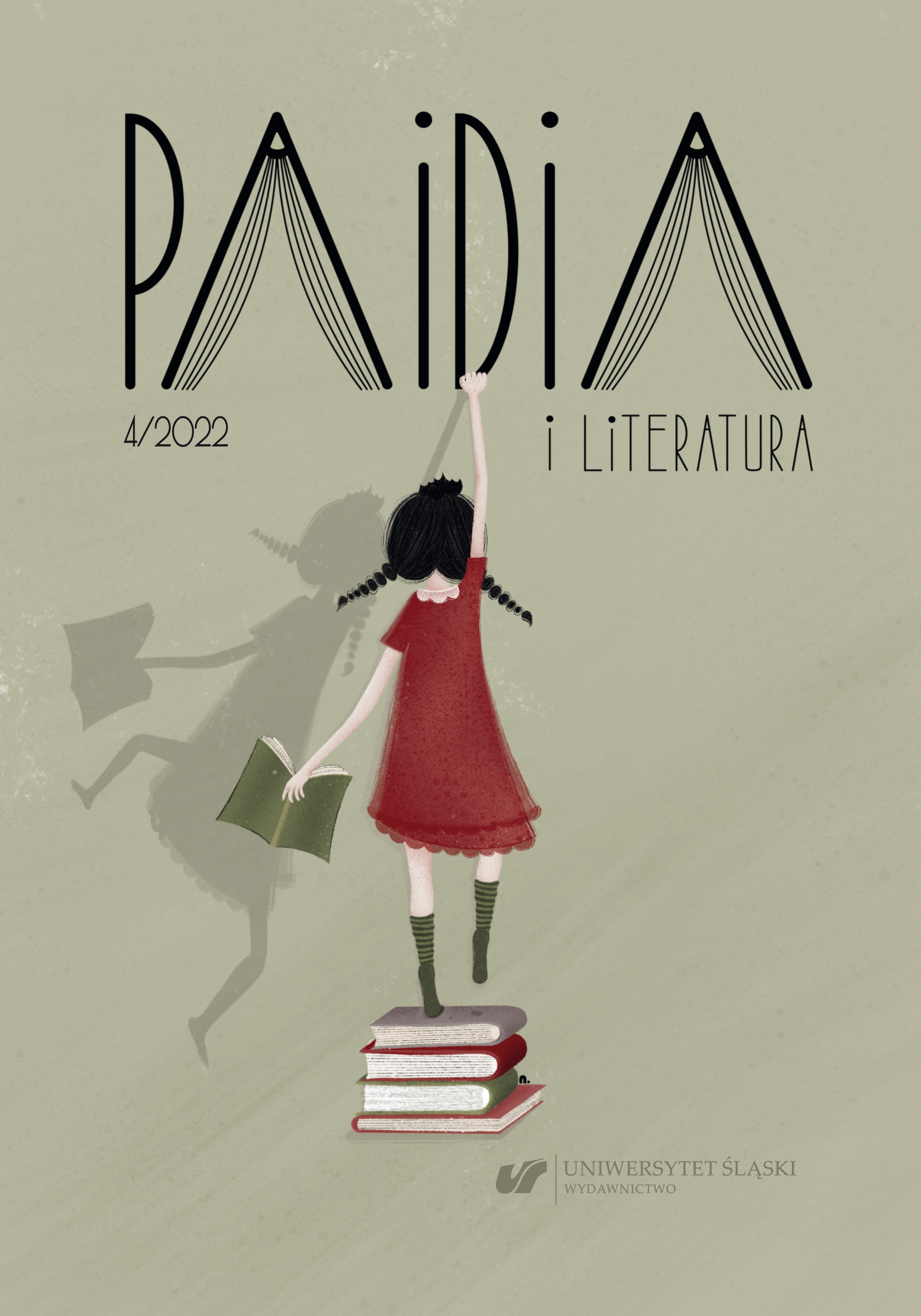
The main purpose of Helena Barbara Balcerek’s article is to present an original project aimed at the amplification of both the language potential (communication competences) and the literary-cultural potential of sixth-grade primary-school students. The project’s method consists in problem-based learning which integrates literary-cultural content-oriented teaching and language education (including rhetoric) with educational and prosocial processes. Reflections yielded by an in-depth analysis and interpretation of texts used in the project as well as discussions concerning the problem of human values and needs lead, as it turned out during the project’s execution, to ecological issues and climate challenges facing the contemporary world. A large group of students have come up with practical ideas as to the use of available resources as means to resolve the climate crisis and to undertake pro-ecological actions.
More...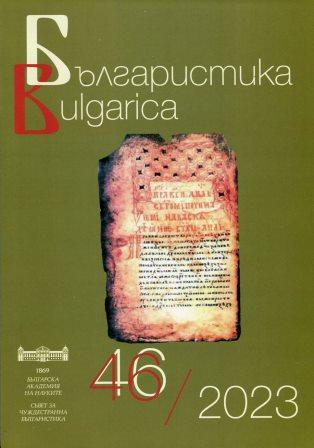
Data about scientific events in the field of the humanities in Bulgaria in the first half of 2023.
More...
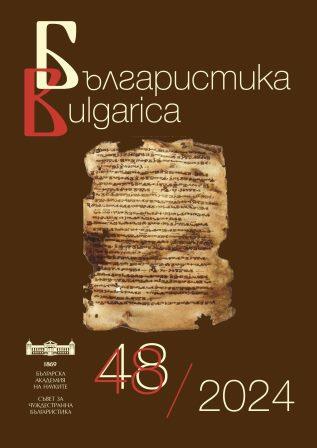
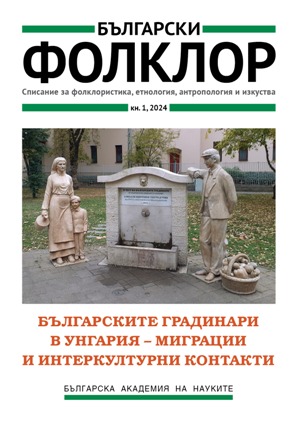
Materials about Bulgarian Gardeners in Central Europe
More...